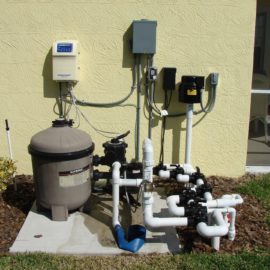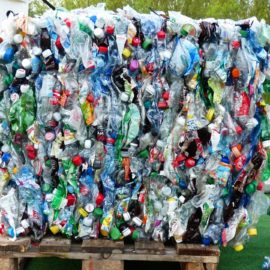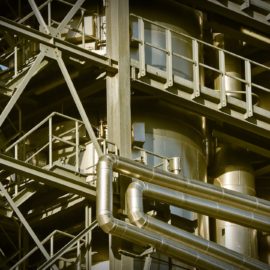
Formosa and the LDEQ were back in court thanks to the Tulane Environmental Law Clinic. At issue was the data used to determine emissions linked to sickness. The data used by Formosa and the LDEQ was old and newer data was available.
A state district judge sent critical air permits for a $9.4 billion Formosa Plastics complex back to state environmental regulators so they can take a closer look at the St. James Parish facility’s emissions impacts on Black residents living nearby. Nineteenth Judicial District Judge Trudy White issued the finding during a hearing Wednesday, telling the state Department of Environmental Quality to more properly evaluate the environmental justice questions surrounding the project, plaintiff’s attorneys said. White ruled two weeks after the U.S. Army Corps of Engineers announced it would be suspending its wetlands permit for the facility along the Mississippi River to review its own analysis of alternative sites and failure to look at potential sites in neighboring Ascension Parish. Formosa officials said White’s ruling did not suspend the air permits in the interim, but her ruling does add another layer of uncertainty for a project that is expected to create 1,200 permanent jobs, tens of millions of dollars per year in state and local taxes, and millions more in spinoff benefits once built.
Advocate.com
The land and wetland permits and the state air permission still let the plant preparation continue but more uncertainty has been thrown into the mix.
Janile Parks, spokeswoman for FG LA, noted the “Court appears to have ruled on the merits of the case before all parties in the matter — including FG and LDEQ — had filed briefs detailing the facts.” Parks called DEQ’s air permits “sound.” “FG intends to explore all legal options,” she said. The Corps’ decision earlier this month had already halted major construction activities.
This hurts the parish as well as a major refinery is closing, one that was an economic mainstay since the 1960’s.
During a Zoom hearing Wednesday, White told attorneys and others that environmental racism exists and operates through the state’s institutions — through personnel, policies, practices, structures, and history, intentional or unintentional, according to notes shared by the plaintiffs’ lawyers. A staff attorney for White did not dispute the plaintiffs’ recitation of the judge’s words. White also told DEQ and company lawyers that the air permits must have a complete environmental justice analysis and that DEQ did not balance pollution health risks with reasonable certainty, saying the agency made a conclusion without analysis. White’s ruling was verbal, and a written decision had not been issued by Wednesday evening.
The Formosa plant has received the support of the Governor and local officials but opposition from residents, local community groups, and national environmental organizations have presented a strong front against the plant.
They have attacked the project in public meetings and in court over the disproportionate pollution impact they say the facility would add on long-standing, rural African American communities in western St. James. The discovery of what may be plantation-era graves on the fringes of that site that could hold the bodies of slaves has only ratcheted up those concerns.
This decision in court is part of a long line of appeals the opposition to the plant have made as the plight of the residents has worsened.
White’s ruling resulted from a February state court challenge to the air permits. The effect of the proposed air emissions and the alleged paucity of DEQ’s environmental justice analysis were major features of the legal challenge. State courts in East Baton Rouge Parish are the venue for appeals of DEQ decisions statewide. “We are thrilled that the court saw the serious deficiencies in the agency’s anemic environmental justice analysis, some of which we presented, and told the agency that it needs to seriously consider the health impacts of this massive proposal,” said Lisa Jordan, director of the Tulane Environmental Law Clinic. The clinic represents St. James Parish resident Beverly Alexander, who intervened in the state court suit and whose arguments over DEQ’s environmental justice analysis prompted the hearing that led to the ruling Wednesday. Relying on a Tulane clinic analysis, Alexander alleged that DEQ erroneously asserted that key air pollutants in the area around the plant site had decreased since 2015 when Tulane had found they increased. The clinic also alleged that DEQ used outdated, 2011 cancer risk and respiratory hazard data to do a required environmental justice assessment of the plant. That area of St. James is slated for a significant influx of new industrial facilities besides Formosa.
The data used by the LDEQ has long been questioned and LSU has been brought into the debate due to studies they have done. More detailed air quality of specific areas needs to be done.
Last year, a joint investigation by The Advocate, Times-Picayune and ProPublica using U.S. Environmental Protection Agency modeling data found Formosa and other new industrial proposals since 2015 posed an acute impact on predominantly poor and black river communities, though white communities hardly escape it either. Known as the Sunshine Project, the Formosa complex will produce the raw materials for a variety of plastics and has been permitted to emit more than 800 tons of toxic pollutants, nearly 6,500 tons of criteria pollutants known to cause ground-level ozone and respiratory ailments, and more than 13.6 million tons of greenhouse gases annually, DEQ says. In DEQ’s air permit decision, the agency challenged heavy reliance on federal modeling data used in that newspaper analysis, as simplified and representing a worst-case scenario. DEQ says it did extra investigation, considered actual conditions and found the plant would not adversely affect human health or the environment. White made her ruling ahead of a January hearing where the parties were going to tackle the overall merits of the suit, brought originally by Rise St. James, Louisiana Bucket Brigade, Sierra Club and other groups. Alexander’s motion revolved around adding data to the court record, a procedural step that usually sets the stage for the main arguments. DEQ and FG had a deadline of Dec. 15 to file those briefs before White set it aside Wednesday.
There was disagreement between the lawyers on how the case was reported to the press.
Tulane’s Jordan disagreed with Parks’ analysis of the judge’s ruling. She said White didn’t rule on the overall case but exercised her discretion to require DEQ to consider additional information and then send a revised permit back up to the court. Greg Langley, a DEQ spokesman, couldn’t immediately comment on the ruling beyond confirming that White sent the air permits back to DEQ. “The judge in the case issued a verbal ruling, and LDEQ is presently assessing its options,” Langley said.
And so the battle continues. The next step will be how the LDEQ uses the new, updated data. I would expect them to slant it toward Formosa but I know that those opposing the plant will be looking for this. Stay tuned! I would like than Ann Rolfes of the Louisiana Bucket Brigade for sending this link to me.



